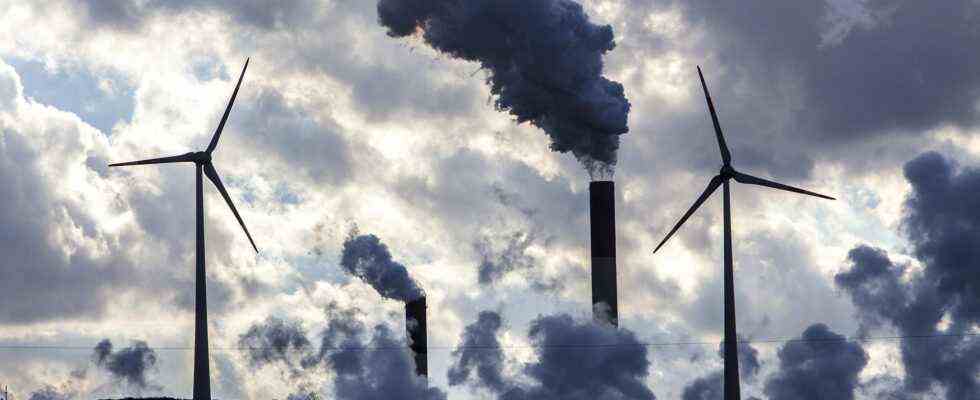Status: 06.01.2022 2 p.m.
The electricity from wind power collapses – and coal is celebrating a comeback. The analysis of the emissions from the “Agora Energiewende” think tank shows that Germany is moving away from its climate protection goals.
Visibly satisfied, the Ministry of the Environment announced last year that the 2020 climate protection targets had been met. Now it is clear that it was a flash in the pan – the climate protection targets will be broken again in 2021. At least that is what the evaluations of the “Agora Energiewende” think tank show ARD capital studio present exclusively. Accordingly, emissions rose significantly again in the past year. 772 million tons of CO2 equivalents were emitted, 33 million tons – or 4.5 percent – more than in the previous year.
The increase in 2021 can be seen in connection with the significant decrease in emissions in the previous year. 2020 was the year in which the pandemic began and, especially in the first lockdown, mobility, among other things, fell significantly.
And so “Agora Energiewende” also sees the partial economic recovery as the main driver for the rising emissions in 2021. In addition, the decline in electricity generation from renewable energies and a sharp rise in fuel prices for natural gas are also responsible for the increase in CO2.
“Implementation gap continues to grow”
The data from Agora shows that coal is celebrating a real comeback due to the high natural gas prices. The share of coal in electricity generation rose by almost a fifth to 27.8 percent – after major losses in 2020. However, that should change again with falling gas prices. Simon Müller, director at “Agora Energiewende”, complains that there is a discrepancy in politics between target setting and implementation: “2021 is the year in which Germany set the most ambitious climate targets in the history of the Federal Republic. On the other hand, the implementation gap continues to grow.”
Transport: more CO2 emissions than allowed
The emissions did not reach the same level as in 2019, the year before Corona, but at the same time the restrictions have not yet been completely overcome. Despite persistently restricted mobility – especially in the first quarter of 2021 – more CO2 was emitted in the transport sector than allowed by the Climate Protection Act. According to the data analysis of the think tank, the so-called sector targets are also missed in the building sector. That was already the case last year. The renewed failure of the target shows the urgent need for action in the building sector, warns Müller.
Data from the Federal Environment Agency in spring
The climate ministry initially did not want to comment on the evaluation of “Agora Energiewende”. The official data from the Federal Environment Agency will follow in spring. In the past, however, they were similar. Head of department Robert Habeck should not be surprised anyway, as the minister recently said in an interview that he assumed that the climate protection targets would be missed in the next two years because they were starting with a drastic delay.
The figures on the use of renewable energies also show how drastically the gap is. According to the analysis of the think tank, electricity production from wind turbines will see the biggest slump of all time in 2021. The share of electricity consumption was only 42.3 percent. The reasons are less strong winds, an overall higher power generation and continued weak expansion.
Environmental groups fear the weakening of green investments
In the coalition agreement, the traffic light coalition stipulated that 80 percent of electricity should come from renewable energies by 2030. As a result, for the 80 percent target, the share of renewables has to almost double in nine years. Which also seems ambitious against the background of the simmering taxonomy debate. Environmental groups fear that a green label for nuclear energy and fossil gas could weaken the credibility of green investments.
With the completion of the nuclear phase-out in 2022 and the ongoing phase-out of coal in Germany, enough space for wind power would have to be secured quickly and photovoltaics unleashed, demands the director of “Agora Energiewende”. 2022 must be the year of measures so that goals and implementation do not continue to diverge.

